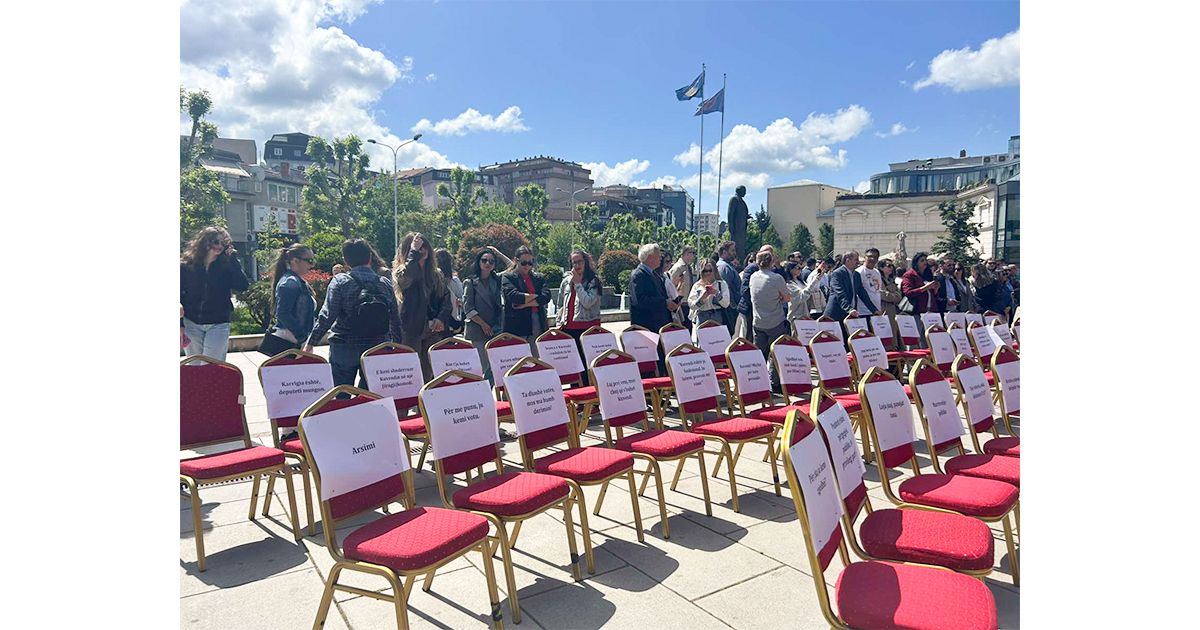Gezim, an ambitious young man, met the Director of the Special School for the Blind and Persons with Visual Impairments to request additional Braille typing machines. He plans to be persistent until the school has enough machines for all students.
“I do not plan to quit until I achieve this goal,” he said. “I don’t care how many meetings it takes.”
Gezim was among the blind and partially sighted youth participating in discussions for promoting usage of the Braille alphabet. The Committee of Blind Women of Kosova gathered youth on 14 Sep. at their new centre in Prishtina to inform youth about a new initiative and to collect their input.
Youth were excited to learn that the Committee of Blind Women will be collaborating with elementary schools and the Ministry of Education, Science and Technology to introduce Braille boards for the first time. The Braille alphabet uses different combinations of six dots, each representing an alphabet letter. Braille enables blind persons to read by using their sense of touch, rather than their eyes. By introducing Braille boards in schools, the Committee of Blind Women will help blind and partially sighted students learn the Braille alphabet and thus learn to read. They plan to introduce the first boards at “Emin Duraku” and “Anton Z. Cajupi” schools in Prishtina this year.
The Committee of Blind Women also plans to involve youth in raising awareness among school directors, teachers and pupils about their needs and the importance of using the Braille alphabet.
“I need you to get good grades at school and set an example of excellence for other students in order to convince people to help us achieve our aim,” said the Committee’s Director, Bajramshahe Jetullahu.
The Committee’s initiative encourages youth to advocate for their right to education.
“Our greatest need is to have the understanding of citizens,” said a young woman who is participating in the initiative. “They need to understand that you can never know what life will bring you. Maybe one day they will become [blind] like us, and they will need somebody to help them.”
The Committee of Blind Women’s Initiative received support from the KWN Kosovo Women’s Fund.



